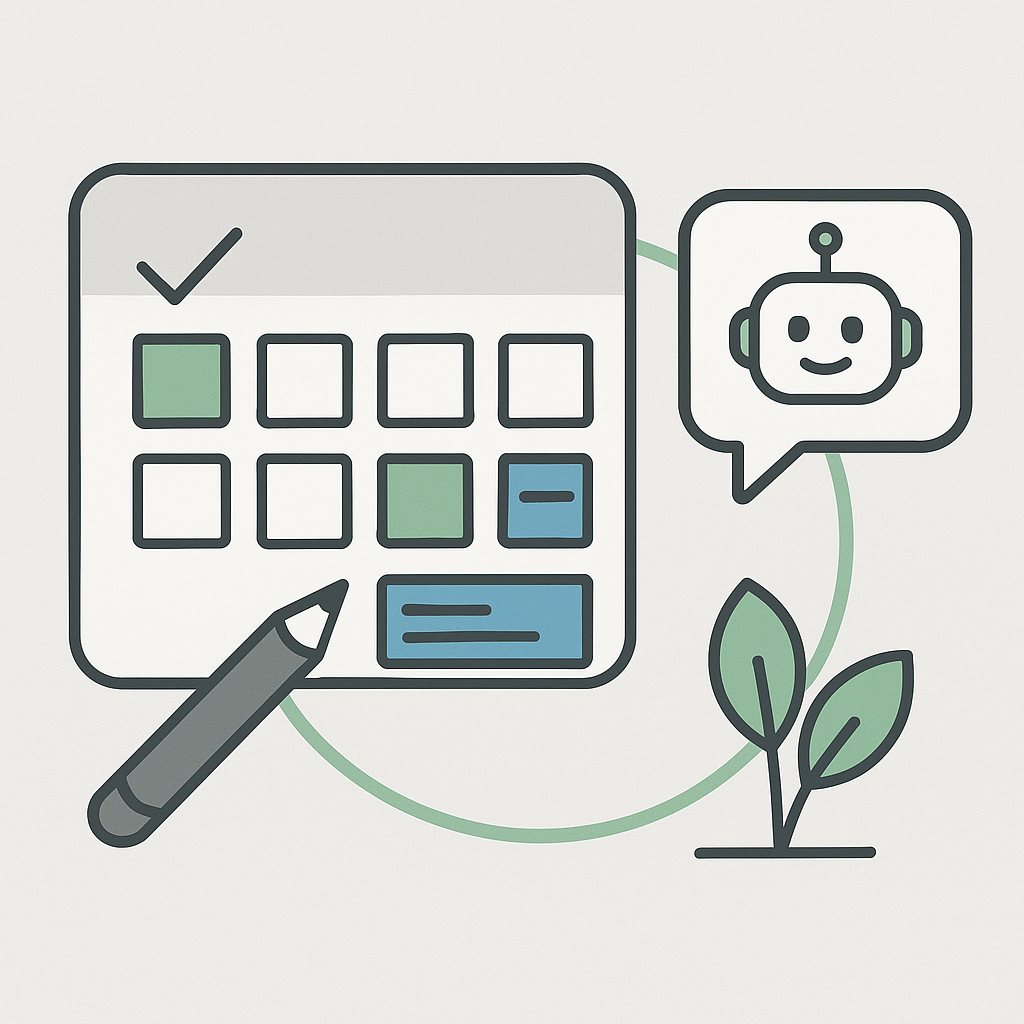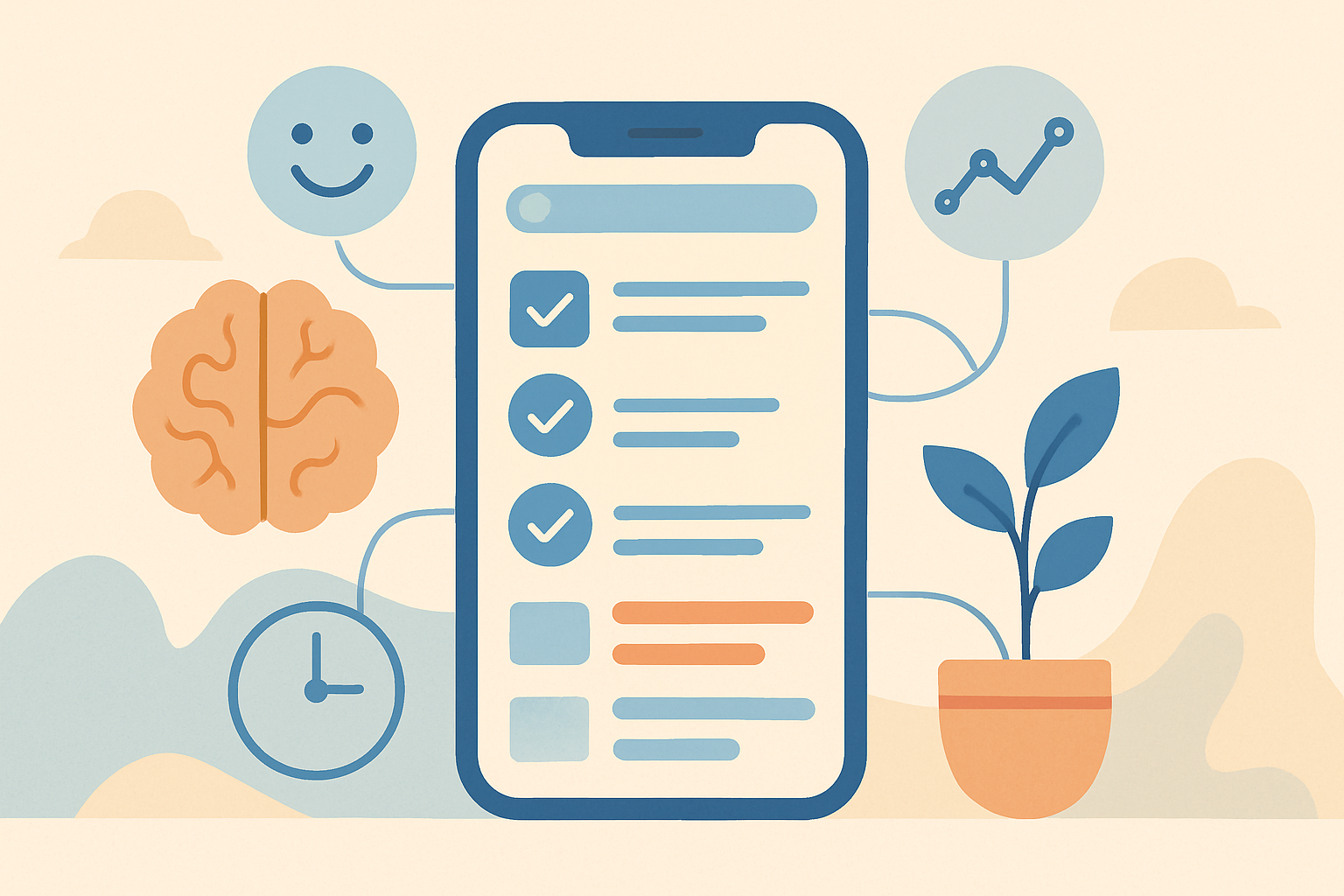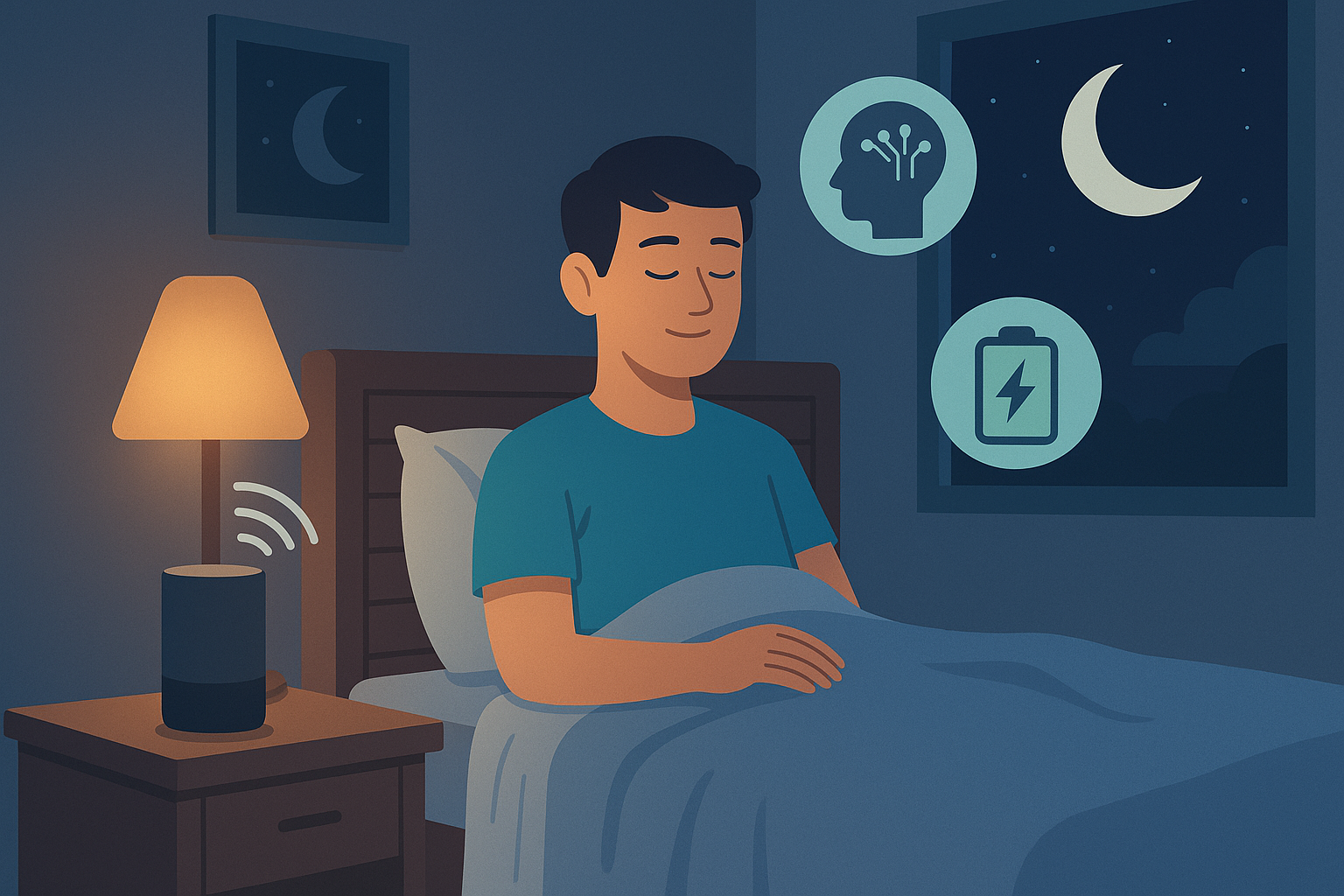Plan Week. Every productive week starts before the first task appears on your calendar. It starts with clarity — knowing what truly matters and when to do it.
But modern work doesn’t make that easy. We’re surrounded by endless notifications, shifting priorities, and reactive meetings that destroy momentum. By the time Monday arrives, most people are already behind.
AI is changing that. It’s redefining how we plan, not by giving us another to-do list, but by automating the thinking behind it. In just ten minutes, you can use artificial intelligence to map your goals, align your schedule with your energy, and create a realistic plan that actually works.
This isn’t about overplanning your life. It’s about freeing up your brain from micromanagement — turning weekly chaos into intentional rhythm.

Plan Week. The Shift from Lists to Systems
Traditional planning focuses on what needs to be done. AI planning focuses on how and when it should be done.
Instead of writing down dozens of tasks, modern AI tools analyze your habits, priorities, and time blocks. They understand patterns — when you focus best, when meetings drain your energy, when creative work flows naturally.
Once these systems learn your rhythm, they build a schedule that fits it. Your week no longer feels like a series of obligations; it feels like momentum that builds itself.
AI planning apps like Motion, Reclaim AI, or Notion AI create this flow automatically. They don’t just plan — they adapt. If your priorities shift midweek, the system reorganizes tasks instantly, keeping your energy aligned with progress.
The result is a living calendar that breathes with you.
Plan Week Clarity Before Scheduling
The biggest mistake in weekly planning is starting with your calendar. The best plans start with your mind.
Before assigning time blocks, AI journaling tools like Mindsera or Reflect AI analyze your goals and help you distill them into actionable focus areas.
Instead of juggling ten vague objectives, you get three clearly defined outcomes — the ones that actually move you forward.
For example:
“Instead of planning 20 micro-tasks, your AI identifies three leverage actions: finish proposal draft, launch campaign test, and schedule stakeholder review.”
That’s clarity as a system. You’re not guessing what matters — AI helps you see it.
Once focus is defined, the scheduling phase becomes effortless.
Building the Plan Week Around Energy, Not Hours
AI tools go beyond time management — they manage energy management.
Every person has natural peaks and troughs in attention. Some think clearly at sunrise, others find flow late at night. Instead of forcing yourself into a rigid 9-to-5, AI can optimize your schedule around your unique focus patterns.
Apps like Reclaim AI analyze your digital calendar, task history, and biometric data to learn when you work best. If deep work peaks mid-morning, the AI protects that block, moving low-value tasks or meetings to less critical hours.
This approach eliminates burnout and builds long-term consistency.
It’s no longer about filling time; it’s about protecting flow.
The 10-Minute Plan Week Method
Imagine opening your AI dashboard every Sunday or Monday morning. In ten minutes, it gathers everything — goals, deadlines, and tasks from different tools — and transforms it into a balanced, visual plan.
You review, adjust one or two things, and confirm.
That’s it.
Your AI assistant now knows what you need to do and when to remind you. It even suggests where to add recovery breaks, reading blocks, or workouts to maintain mental clarity.
In practice, your ten-minute planning session might look like this:
You open Motion. It scans your Notion database for new tasks, checks your meetings in Google Calendar, and identifies potential conflicts.
You approve a few automatic adjustments.
AI generates an optimized weekly view, color-coded by priority and energy type.
Now your week has structure — and you didn’t waste hours creating it.
From Reactive to Predictive Plan Week
What makes AI planning revolutionary isn’t just automation — it’s anticipation.
Predictive systems learn your tendencies. If you consistently miss a task on Thursday evenings, the AI quietly reschedules similar tasks earlier next week. If it sees that creative work thrives after physical exercise, it starts placing writing sessions right after your morning workouts.
This constant recalibration turns your week into a feedback loop. AI doesn’t punish inconsistency; it learns from it.
The more you use it, the smarter it becomes.
Integrating Work, Rest, and Reflection
Effective planning isn’t about cramming more into your week — it’s about creating space.
AI tools now understand that rest is not a luxury; it’s a productivity multiplier.
Reclaim AI, for example, blocks “white space” between intense tasks to prevent cognitive overload. Notion AI recommends adding reflection moments at the end of each day, summarizing lessons and emotional insights.
That’s how high performers sustain their pace — not through nonstop action, but through intentional balance.
Your 10-minute AI planning routine doesn’t just optimize your work. It optimizes your mental bandwidth.
The Cognitive Science Behind AI Planning
According to research from the University of Oxford, humans lose up to 23% of weekly productivity due to context switching — jumping between tasks without mental reset.
AI planning reduces that friction. By clustering similar tasks and aligning them with focus windows, your brain stays in the same cognitive gear longer.
This enhances both speed and quality.
The outcome is less decision fatigue, fewer wasted transitions, and a measurable improvement in output.
That’s why elite professionals increasingly rely on AI assistants: they offload the planning burden so the brain can focus on creation, not coordination.
A Week Designed for Flow
When your week begins with an AI-assisted plan, you immediately experience psychological relief. There’s no guessing, no guilt, no overload — just direction.
You can start Monday already knowing where your energy belongs.
Instead of waking up to chaos, you wake up to clarity.
Instead of firefighting tasks, you engage in deep, meaningful work.
Instead of juggling deadlines, you finish early — because your schedule works with you, not against you.
This is what productivity feels like when powered by intelligence instead of intensity.
Tools That Make It Happen
Here’s a simplified view of how you can apply this system today:
| Function | Recommended AI Tool | Purpose |
|---|---|---|
| Goal Clarification | Mindsera / Reflect AI | Convert goals into actionable focus |
| Smart Scheduling | Motion / Reclaim AI | Automate calendar & task alignment |
| Focus Optimization | Notion AI / Sunsama | Balance priorities with daily energy |
| Rest Calibration | Rise Science / Calm AI | Track recovery and stress |
| Reflection Loop | Mem AI / Notion | Learn from each week automatically |
You can mix and match — the key is connection.
Most modern AI tools integrate seamlessly with Google Calendar, Notion, Asana, or Slack, turning a fragmented workflow into one coherent system.
Once linked, your week begins to plan itself.
The Power of the 10-Minute Reset
The beauty of this approach is its simplicity.
You don’t need to plan for hours or use complex spreadsheets. You only need to commit to a ten-minute weekly reset — a brief window of reflection, adjustment, and alignment.
In those ten minutes, AI helps you reconnect with your priorities and eliminate clutter. It becomes a ritual of clarity, much like meditation for your schedule.
You end not with a to-do list, but with peace of mind. Plan Week
The Future of Time Design
In the near future, AI planning won’t just react to your inputs — it will synchronize with your body’s signals in real time.
Your smartwatch will tell your AI when your focus dips. Your nutrition app will know when low blood sugar might affect your energy. Your calendar will automatically adapt, protecting your deep work when you need it most.
This convergence of data and awareness is leading to what productivity researchers call “time design” — a world where your schedule is alive, intuitive, and entirely human-centric.
Ten minutes is all it takes to start building that future today. Plan Week
Conclusion
Planning your week shouldn’t feel like a chore. It should feel like setting momentum in motion.
With AI, that process becomes effortless — because it’s personalized, adaptive, and aware of how you work best.
When your week is organized by intelligence, not impulse, every day unfolds with calm efficiency. You no longer chase time; you direct it.
Ten minutes on Sunday could transform your entire Plan week.
That’s not just productivity — that’s freedom.
By MBFProductivity
Further Reading & Related Insights
Internal link:
→ The AI Morning Routine for Energy & Focus — Learn how to start each day aligned with energy and purpose.
External links:
→ Reclaim AI — Smart scheduling and focus automation for effortless weekly planning.
→ Mindsera — AI-powered journaling and mental clarity platform that helps you plan with intention.
Blog
This section provides an overview of the blog, showcasing a variety of articles, insights, and resources to inform and inspire readers.
-

AI Habit Tracking and the New Rhythm of Modern Self-Improvement
AI Habit Tracking. Progress used to depend on discipline. Now, it depends on data.…
-

AI Decision Making and the New Discipline of Intentional Living
AI Decision Making. Every “yes” has a cost. Every time you agree to something…
-

The Perfect AI Night Routine to Sleep Better and Think Smarter
AI Night Routine. Your morning doesn’t begin when you wake up — it begins…
